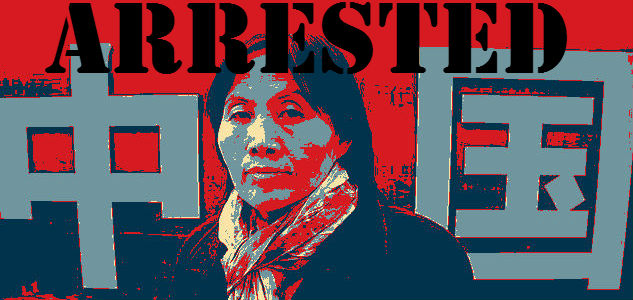
Ahead of UN human rights review, China activist goes missing
The Christian Science Monitor
When the United Nations scrutinizes China’s human rights record next month, Cao Shunli’s voice will not be heard. Ms. Cao, who has spent years trying to persuade Beijing to allow ordinary citizens to help draft its UN report in line with international practice, has disappeared since she was arrested at the Beijing airport on Sept. 14.
She was on her way to Geneva for a human rights training program ahead of China’s submission to a review every four years by the UN Human Rights Council, expected to be a difficult exercise for Chinese diplomats.
RECOMMENDED: How much do you know about China? Take our quiz.
Her arrest and disappearance is “part of extensive efforts to conceal China’s very troublesome human rights record,” charges Nicholas Bequelin, a China researcher with Human Rights Watch in Hong Kong.
Foreign Ministry spokesman Hong Lei said Friday he was “not aware” of Cao’s disappearance, nor of her fate.
China is slated to present its human rights record to fellow UN members in Geneva on Oct. 22, in a procedure known as a Universal Periodic Review (UPR). Its report paints a rosy picture of a continually improving situation, with no mention of the prevailing press censorship, imprisonment of political opponents, harassment of independent lawyers, or any other violations of commonly accepted human rights.
The UN encourages governments to involve their publics in drafting official UPR reports, and most do. The Chinese authorities, however, have “closed the door” on independent voices, complains Liu Xiaofang, a retired librarian who says she has been arrested repeatedly for protesting outside government offices against that policy.
In its UPR submission, China says that “broad public input on the report was sought via the website of the Ministry of Foreign Affairs.”
There is no trace of such a consultation on the website, however, and Ms. Liu says if it happened it was “a trick to cheat the world.”
Few of the petitioners seeking redress for human rights abuses, who make up the bulk of those demanding public involvement in the UPR, are familiar with the Internet, Liu points out. And the procedure was not advertised in China.
How to customize this embed: https://www.repost.us/article-preview/hash/25cab7ce89f8febf67ed45d3fe89690a
Leave a Reply